SERVICES

 Investigation Services
Investigation Services
Fort Wayne Metro investigates discrimination complaints filed by Fort Wayne residents. Discrimination is the unfair treatment of people based on their race, color, religion, sex (including sexual orientation and pregnancy), national origin, age, or disability (familial status is a protected class in housing complaints only). We are neutral fact finders—impartially investigating a charge and representing the public interest. Investigations are confidential, but not anonymous
Employment
If you feel that you are a victim of discrimination in employment, it is your right to file a complaint. However, for Metro to have jurisdiction to file your complaint, your situation must meet the following criteria:
- You are an employee.
- Your employer has six (6) or more employees.
- The last date that you were harmed by the discrimination occurred within the last 300 days.
- The place of employment (where you worked) is located within Fort Wayne's city limits.
- You have identified a protected basis. In other words, you believe that your employer took action against you because of your sex, race, religion, disability, national origin, sexual orientation, age, ancestry, place of birth or pregnancy. Other unlawful discrimination includes harassment based on any of those things, retaliation and failure to provide an accommodation for a disability.
Please be aware that if your situation does not meet the above criteria, you should still speak with an investigator because we may be able to take your complaint and forward it on to the proper agency.
Housing
The Ordinance and the Fair Housing Act prohibits discrimination because of a person's race, color, religion, sex, disability, familial status (familial status means households with children under 18 years of age living with their parents or guardians, pregnant women or people securing the custody of children under 18 years of age) or national origin. Discrimination includes denial of housing or intimidation of people in their apartments, condominiums and nearly all housing transactions including lending discrimination and steering.
Sale or Rental:
- Refusal to rent or sell
- Refusal to negotiate
- Deny housing or make housing unavailable
- Set different terms, privileges or conditions for the sale or rental of a dwelling
- Provide different housing services or facilities
- Falsely deny that housing is available for inspection, sale or rental
- For profit, persuade or try to persuade homeowners to sell or rent dwellings by suggesting that people of a particular race, etc. have moved or are about to move into the neighborhood (known as blockbusting)
- Deny any access to, or membership or participation in, any organization, facility or service (such as a multiple listing service) related to the sale or rental of dwellings, or discriminate against any person in the terms or conditions of such access, membership or participation
- Steering due to protected class
Mortgage Lending:
- Refusal to make a mortgage loan
- Refusal to provide information regarding loans
- Impose different terms or conditions on a loan, such as different interest rates, points or fees
- Discriminate in appraising properties
- Refuse to purchase a loan
- Set different terms or conditions for purchasing a loan
Other Violations:
- Threaten, coerce, intimidate or interfere with anyone exercising a fair housing right or assisting others in exercising their right
- Make, print or publish any statement, in connection with the sale or rental of a dwelling, that indicates a preference or limitation, or discrimination based on race, color, religion, sex, disability, familial status or national origin
- Refuse to provide homeowners insurance coverage or provide available information about coverage for a dwelling because of the race, color, religion, sex, disability, familial status or national origin of the owner and/or occupants of the dwelling
- Discriminate in the terms or conditions of homeowners insurance coverage because of the predominant race, color, religion, sex, disability, familial status or national origin of the residents of the neighborhood in which a dwelling is located (known as redlining)
- Make, print or publish any statement, in the connection with the provision of homeowners insurance coverage that indicates a preference, limitation or discrimination based on race, color, religion, sex, disability, familial status or national origin
Disability Discrimination in Housing:
- Refusal to allow a tenant to make a reasonable modification to a dwelling or common area, if necessary for the disabled person to be able to use the housing fully
- Reasonable accommodations can also include changing rules, policies, practices or services if necessary for the disabled person to use the housing on an equal basis
Public accommodation
The term public accommodation refers to an establishment that offers its goods or services to the public. The City's General Ordinance G-21-78 prohibits these types of establishments from engaging in discriminatory conduct.
Some examples of these types of establishments are restaurants, retail stores, some government offices or services, hotels and bars. Discrimination in this setting includes denying service to someone or otherwise interfering with a person or persons attempting to use the goods or services. Some law enforcement activities (Fort Wayne Police and Sheriff's Department) fall into this category as well. Examples of such complaints include allegations that the police singled out an individual and treated them differently based on any of the protected classes listed under the City Ordinance.
Education
Any person, establishment or governmental agency regularly engaged in the offering of educational services is a covered entity under the local ordinance. These include public or private schools, colleges, universities and trade schools.
If a person has been discriminated against or harassed in this because of their religion, sex, disability, race, color, national origin, sexual orientation, place of birth, ancestry, or age they should consider filing a complaint. If a child has been discriminated against in school, the parent or guardian may file the complaint on their behalf.
How It Works
Inquiries and Complaints
If you believe you’ve been discriminated against, submit an online inquiry or call our office. [link to form] A Fort Wayne Metro team member will reach out to you to discuss the incident and help you file a complaint should you choose to do so. You may also walk-in to our office, and you will be able to sit with an investigator face-to-face. An inquiry is not considered a filed complaint.
Investigation
Once a complaint has been filed, Fort Wayne Metro Investigators gather and summarize all relevant facts and evidence. In most cases, the investigation will require an onsite investigation at the respondent’s facility (employer, housing provider etc.), where investigators will review documents and interview witnesses. The complainant and respondent may have an attorney throughout the process, but an attorney is NOT required.
Mediation
The Commission may also hold a mediation with the complainant and the respondent to discuss the issues and attempt resolution of the complaint. Mediation is not the same as investigation. Parties are not required to submit evidence during this process. A mediation is not a hearing. Mediation is voluntary and free through the Metro process.
Determination Hearing
If no settlement agreement is reached by the parties after the completion of the investigation, Fort Wayne Metro will hold a determination hearing (which the parties do not attend) to determine whether further action (due to evidence uncovered) is warranted. If so, a finding of “probable cause” is issued.
If no further action on the complaint is warranted, a finding of “no probable cause” is issued, and the complaint is dismissed. Complainants may appeal a decision of “no probable cause” to the Commission if they notify the Commission in writing of their intent to appeal within ten days of notification of “no probable cause” determination.
Conciliation
Upon a finding of “probable cause,” a formal attempt at resolving the complaint will be made. If a settlement is made, a written settlement agreement will be issued for the signatures of all parties. Any agreement is subject to approval by the Commission. If approved, the settlement agreement has the same effect as a Final Order.
Public Hearing
Should formal conciliation fail, the matter will be scheduled for a formal public hearing if legal makes the assessment that sufficient evidence is present for complainant to meet the burden of proof by a preponderance of the evidence. At a public hearing, a Hearing Officer tries the case and may issue recommended Findings of Fact and Conclusions of Law and a Final Order. If not appealed within ten days after notification, the Commission may adopt, as a Final Order, the recommended order or determination without further hearings.
Final Order
A Final Order by the Commission is binding. Either party may seek judicial review in civil court.
Remedies
If the Commission finds that discrimination has occurred, a Final Order may include a cease-and-desist order, job reinstatement, monetary relief, making a house or apartment available, mandatory diversity training or other affirmative action and public interest relief to eliminate the effects of discrimination.
If you think you’ve experienced employment, housing, public accommodation or education discrimination, file an inquiry. A member of our team will reach out within two business days.
